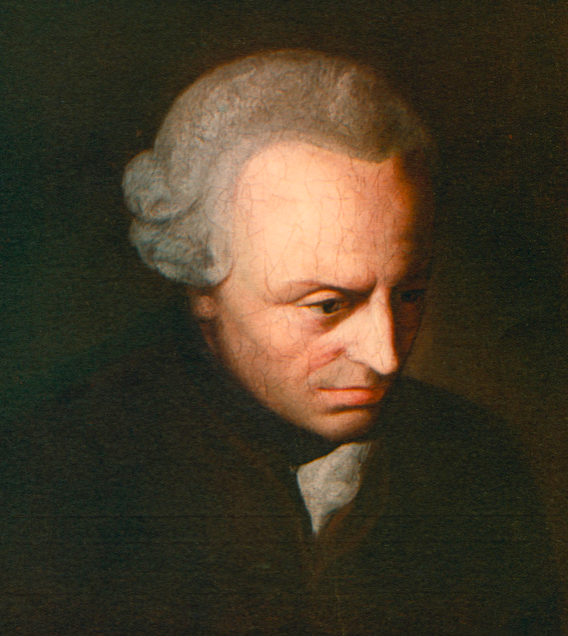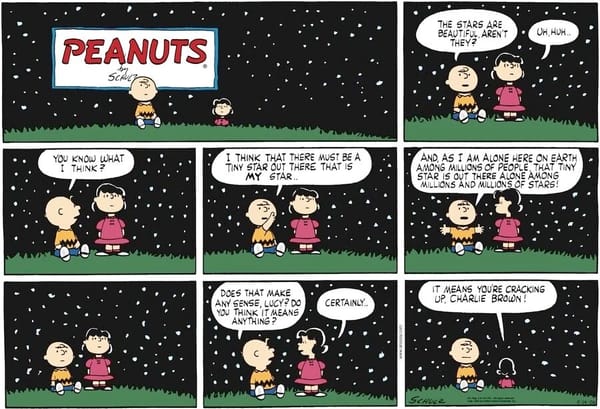Improving the Self through Virtue Ethics
This essay is about the applications of virtue ethics - a normative theory of ethics - in everyday life. Normative ethics, virtue ethics, and its applications to self-improvement are discussed.

The study of Normative Ethics is primarily concerned with how we assign moral status to actions—that is, how we assign “right-ness” or “wrong-ness” to particular actions. For example, the majority of human beings consider the following to be correct: “Murder is wrong” and “Donating to charity is right”. We are taught or socialised from a young age to hold these as truths. However, it is also useful to investigate what are the reasons that may underlie such assertions. How do we determine that murder is truly wrong? What makes an action good or bad? Historically, there have been three philosophical approaches and philosophers are divided on the correct one.
Consequentialists
The first camp of philosophers are called by the name “consequentialists”. They think that what determines the moral status of an action is the very consequence of the action.
Deontologists
The second camp of philosophers are known as “deontologists”. This is a word that stems from Ancient Greek. The word “deon” means duty. The suffix “logy” means the science or study of. Therefore, deontology refers to the science or study of duty. These philosophers believe that the moral status of actions derives from the actions themselves. Actions are just in and of themselves. Their rightness and wrongness are not determined, like the consequentialists say, by the consequences they entail. Instead, deontologists believe actions are right or wrong inherently.
Virtue Ethics
The last camp of philosophers are given the name “virtue ethicists”. They believe instead of focusing on actions in isolation, moral actions are developed through the development of a moral or virtuous character. Therefore, they give greater weight to the intention of the person behind the action.
Interlude: On Smoking
Studies on smoking show interesting evidence that may support the practice of virtue ethics. James Clear, in his book Atomic Habits, discusses the importance of understanding “identity influencing behaviour” in breaking bad habits and forming good ones. He references a study concerning smoking:
There were two groups who had quit smoking. Both were asked if they wanted to smoke. One replied “No, thank you. I am trying to quit smoking”. The other said “No, thank you. I am a non-smoker”. The group that identified as non-smokers were more likely to quit smoking than the group that identified as smokers that were trying to quit (Tombor et al., 2015).
The study showed that identity (e.g prioritising conceptions of character) has a significant influence on influencing positive behaviour. Virtue Ethics has great practicality.
Virtue Ethics is a Practical Framework
Normative theories can be classified into two sub-groups: Deontic Theories (what we ought to do - these include Consequentialism and Deontology), and Aretaic Theories (who we ought to be - this includes Virtue Ethics). Virtue Ethics is a seemingly strange formulation of ethics. It does not tell us what we ought to do. It tells us who we ought to be.
Virtue Ethics posits that the premise of the initial philosophical question is incorrect. It is less concerned with “doing good things to become a good person” and more concerned with “being a good person to do good things”. Aristotle develops an account of Virtue Ethics in The Nicomachean Ethics. The book introduces its deliberation on virtue and ethics with the idea that before a person tries to manage other people (e.g the statesman), they should begin by managing themselves. Aristotle states “The true statesman is thought of as a man who has taken special pains to study [the nature of virtue]; for he wants to make his fellow-citizens good and law-abiding people” (Aristotle, 2004, p. 27).
Virtue is made evident in good character traits and vice (the absence or privation of virtue) in bad character traits and actions. Aristotle argues that the manifestation of virtue in man lies between two vices. More accurately, he teaches that vice lies as extreme in regards to virtue (either as an extreme or a deficiency in behaviour). This association of balance with virtue is characteristically known as “The Golden Mean”. An example of this as follows: If someone is deficient in confidence, they are known as a coward. If someone is excessive in confidence, they may be termed a coward. If someone exhibits a balance between excessiveness and deficiency in confidence, they are called a courageous person (courage being an Aristotelian virtue). Virtue Ethics is person-specific. A virtuous level of courage for one person is not necessarily the same for another. In the case of a library fire, it would be cowardly for me to run away, rash for me to attempt to save all the people, and properly courageous for me to call the fire brigade, engage in moderate action and evacuate to a safe location. On the other hand, if a fireman were to mimic my actions and find a safe place, it would not be courageous. It would be cowardly as his job is to eliminate fires.
It is helpful to think of Virtue Ethics using the analogy of driving a car. There are two reasons for this. First, to learn to drive, you need experience. You cannot simply read a book about driving and subsequently become a good driver. Virtue Ethics is the same: If you want to become ethical, you need to practice being ethical. Second, driving is context dependent. The degree of turning the wheel (e.g at a round-about), the force applied to the break, these are all dependent on the specific situation of the car and external objects (e.g other vehicles). Driving is situation-dependent and so is Ethics. Therefore, virtue ethics prioritises the concept that the study of the virtues requires experience. This is called Practical Wisdom, or πηρóνεσισ. Virtue Ethics is applicable to everyday life.
Virtue gives us the ability to be happy. To be virtuous is to be happy. Aristotle says that the one who has achieved all the virtues is the one who has εὐδαιμονία (Eudaimonia), which translates to “flourishing” or “happiness”. These people can and should be looked up to as Moral Exemplars. Through looking up to them, it assists in learning the virtues as well. We are able to find out what the virtues are by looking at a virtuous person.
A Moral Exemplar is just a role model. This is a practical kind of ethics, and this is a very practical idea. We look up to role models all the time. If I want to become a good programmer, I might go to Google to see what the successful programmers are up to and try to ask for advice. If I want to become a good professor, I might want to have a look at what good professors do and copy them. You want to look up to what entrepreneurs are doing to find out which character traits they have. For example, the great investor, Warren Buffett reads investing books for 5-6 hours a day. Perhaps this is a habit you may want to emulate if you want to be more like a person knowledgeable about finance.
The best way to think about virtue ethics is as a framework for improving the self, after all, I introduced Virtue Ethics with an example from a modern day self-help book!
Virtue Ethics as Applied Ethics
We often talk about various kinds of ethics, one being meta-ethics which deals with inspecting the nature of ethics itself. We do not simply list out the ethical principles but instead criticise them and investigate justifications underlying ethical theories. It is important to not just merely repeat ethical theories but also to categorise them. Meta-ethics encourages us to take a more ontological approach. Normative ethics is another kind of ethics which deals with the guidelines, principles and procedures that one should follow. Similarly, applied ethics is yet another kind of ethics which deals with how we should apply normative theories in practice.
Given I am writing about virtue ethics, it may be surprising to you that I am persuaded (for reasons I will not elaborate on here) that meta-ethical justifications lead us instead to consequentialism, in other words, I am a consequentialist in theory. However, theory can only get us so far. There do seem to be many difficulties with actually applying consequentialism in practice: For one, we often deal with the concepts of happiness and suffering in consequentialism. How do we intend on measuring these? Will we survey people everyday after particular actions have been performed to check how happy or sad they are? Second, the consequences of an action can only be determined after the action has been performed. Usually, once the action has occurred, the consequences can’t be reversed. So perhaps we now need to start guessing what consequences will occur after the actions have been taken, leading us to deal with which actions are probable to cause certain consequences. Now we’ll need to hire some mathematicians and experts in probability to tell us which consequences they think will occur after we perform our actions. Thirdly, some consequentialists talk about being committed to maximising happiness in the world. If I want to commit myself to this, I will now have to spend every waking moment of my day trying to figure out which actions will maximise the happiness for others. What should my career path be: will it maximise happiness? Will taking the bus or walking give more happiness to myself and the people around me? How should I write this article such that I make sure everyone reading it is maximally happy? The amount of effort that goes into decision making under this process seems rather stressful! I don’t think anyone would be very happy if we had to be so careful about the decisions we made like this every day.
Given there are so many problems with consequentialism, why not opt for a different choice of normative theory in practice? If my aim in theory is to perform actions that end in good consequences, it seems that virtue ethics is an excellent choice! If I can improve my characteristics, my actions will also improve as a result.
Virtue Ethics can Modify Behaviour for the Better
The first thing that is useful about virtue ethics is that it modifies behaviour. In applied ethics where we deal with real-world stuff, we aren’t so concerned about what ethics is in theory, what the moral facts are or what basis there is for those moral facts. We are interested in getting things done and making sure things work out. One of those things we should be aiming for is making sure people behave properly and this improving one’s character can be a big help in doing this. Some consequentialists might think that the consequences are the only thing that makes an action right or wrong, and that intention plays no role at all. But consider this: if a person has a bad moral character, or they are more disposed to murdering, or have the intent of murdering, I think consequentialists would agree with me in saying that this affects the potential consequences of what will happen in the future. I think most people would agree that a proactive approach is a better approach than a reactive one, and it seems in this case the consequentialist would want to factor in intentions at least as something important derivative of consequences.
If we do want to modify behaviour (ourselves and others), virtue ethics is the best place to start.
References
Aristotle (2004). The Nicomachean ethics. Translated by J.A.K. Thomson. London: Penguin, p.27.
Clear, J. (2018). Atomic Habits: An Easy & Proven Way to Build Good Habits & Break Bad Ones. New York: Penguin Publishing Group, p.32.
Liberto, D. (2025). How This Warren Buffett Habit Could Transform Your Financial Future. [online] Investopedia. Available at: https://www.investopedia.com/warren-buffett-reading-habit-11705911 [Accessed 21 Jun. 2025].
Tombor, I., Shahab, L., Herbec, A., Neale, J., Michie, S. and West, R. (2015). Smoker identity and its potential role in young adults’ smoking behavior: A meta-ethnography. Health Psychology, [online] 34(10), pp.992–1003. doi:https://doi.org/10.1037/hea0000191.





